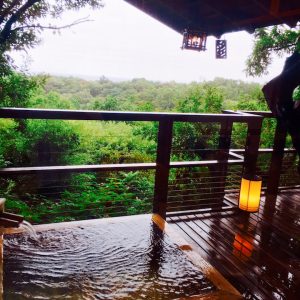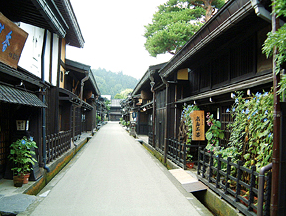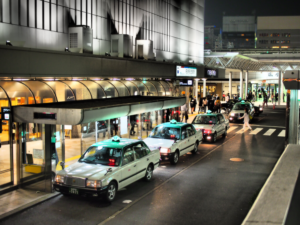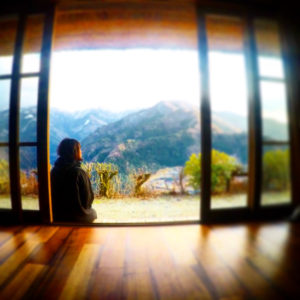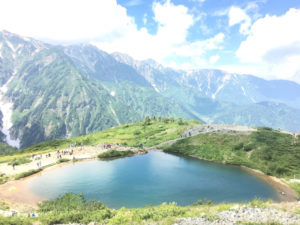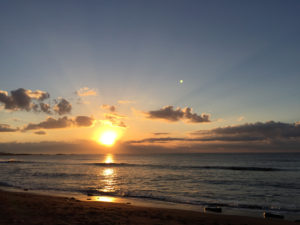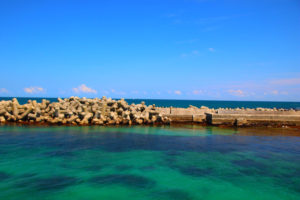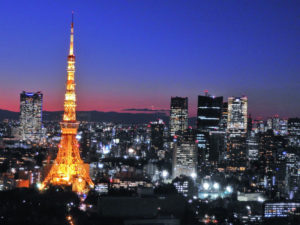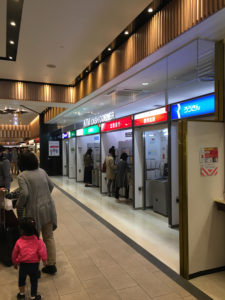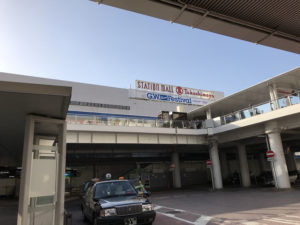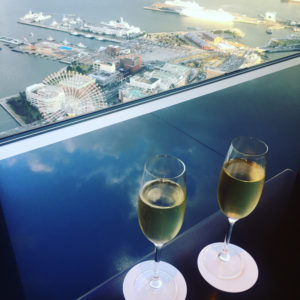Interested in high-performance Akiya (空き家, unused house or abandoned house) investment in Japan ?
Here are what you should know. If you are considering buying a akiya house, you need to know the basic knowledge of akiya investment.
There are lots of things you should know about before ever considering purchasing akiya property.
It is in your best interest to educate yourself about akiya to avoid getting into a situation that you regret.
Buying akiya can be quite useful and comfortable, but only if they are properly searched and if you share the same goals with your agent.Some investors find out akiya investment where they have purchased is not what they expected. In many cases, you’ll be disappointed to find out that the renovation cost of akiya is very expensive. There are a few options in akiya investment.But before I get into details, I want to warn you that I can’t teach you how to get rich overnight by akiya investment or find you a dream
akiya house for free near the ocean in Tokyo area. Unfortunately no house is free in Japan.
Tag Archive for Real estate investment
Can foreigners buy a property in Japan ? : Fundamental rules when acquiring a property
Interested in buying a property in Japan where the country risk is lowest in the world ?
Japan is a rare Asian country insofar as it allows foreigners to buy a property. Foreigners can buy both land and building without special qualification. When it comes to buying a property here, Japan has very few restrictions than the Western countries.
Ownership rights to land and building in Japan by a foreigner is also permitted just like Japanese citizens.
When a registrar has made a registration of ownership with respect to a real property with Legal Affairs Bureau, he/she shall can officially claim the title deeds of the property. However, there are restrictions on agricultural land (farmland). You need to get prior permission from a local agriculture committee (nogyo-iinkai) or governor when you buy the farmland. At least one corporate manager (one member of new owner) has to engage in full-time farming. In other words, if you want to buy farmland, you must become a farmer. The
5-storey residential building in Nagoya city for sale: Rare opportunity to buy a property in central Nagoya
(Nagoya station, Meitetsu line)
Just a snap entry about a property in Nagoya.
It is a VERY good opportunity for someone looking for a good investment in Nagoya area.
The yield is very high and it comes with the awesome financing.
5-storey residential building in Nagoya city
Location : Minami-ku, Nagoya city, Aichi prefecture
10 min walk to the nearest station(Meitetsu line)
and it is only 11 mins to Nagoya station. Excellent location.
Gross yield (return) before the cost : 9.5 % basis 100% occupied
Controversial Japanese Government’s new immigration policy: PM Abe uses the acute labor shortage to push for relaxing the immigration law
(A view from Japanese kominka house, folk house)
Japan is facing the serious shortage of workforce and ageing problem.
How should this country cope with a serious population decline and sustain the vitality of its society and economy?
According to Yomiuri shimbun, the overall shortage is estimated to be 580,000 at present, and was projected to reach 1.45 million five years from now. After subtracting from these figures increases in the number of elderly and women workers and the like, a maximum of 47,000 foreign workers will be accepted in the fiscal year when the planned revisions of the immigration control law take effect, and up to 345,000 over the five years from the revisions.
The government and the ruling camp, led by the Liberal Democratic Party(LDP), will now shift their focus to a key bill to revise the immigration control law and create new residence status in order to allow Japan to accept more foreign workers.Time employed under new visas won’t count toward working period requirement for permanent residency.
The Justice Ministry does not intend to count time spent employed under one of two new visas set to be introduced spring 2018 when checking whether those who apply for permanent residency status meet requirements.One of the prerequisites for permanent residency in Japan is having five years of work experience in the country. But according to the sources, those working under the new proposed visa status — which will be available to individuals with considerable knowledge or experience in areas where human resources are lacking in the nation – will not be able to cite time spent under this status as working time when they apply for permanent residency.
The new visa, along with another type intended for individuals with more seasoned skills in areas similar to those under the first type, is aimed at making up for labor shortages in certain job categories, and will open the door to more foreign blue-collar workers.
In the meantime, the ministry is still considering how to handle time spent working in Japan under the second type of visa.
Discover restful and super-affordable properties in Chiba Boso peninsula: Within easy reach from Tokyo
(Boso peninsula)
* Foreigners can buy a property in Japan without having special qualification.
Explore the charming houses by the lovable ocean and beach
New listings in Boso peninsula, Chiba prefecture!
If you live in Tokyo and want to buy a second house near the ocean and beach, I always recommend Boso peninsula (Kamogawa city, Katsuura city, Minamiboso city, Tateyama city etc). The location is excellent and it takes only 1.5 hours from central Tokyo by car.
You can drive on a highway all through to Kamogawa city from Tokyo and there is no traffic. If you don’t want to drive and rather want to indulge in drinking a beer on the way, there is very comfortable express bus service from Tokyo station. The seafoods and vegetables are nice and fresh (In fact, Chiba prefecture is a major supplier of seafood and vegetables to Tokyo Metropolitan kitchens so nice foods you are eating in Tokyo are often produce of Chiba). Izu peninsula area in Shizuoka prefecture is also very famous for nice beaches and onsen (hot springs) but Izu’s location is not perfect. It takes about 3.5 hours by car to Izu Shirahama beach from Tokyo. In the modern busy life, proximity matters.
In Boso peninsula, they have great surf in the pacific ocean and the quality of sea water is superb. (Believe me you can’t imagine how good the quality of water is in Kamogawa city which is merely 1.5 hours away from Tokyo). In 2020, Tokyo Olympics surfing competition will be held in Katsuura city. According to one of my surfer friends, Boso peninsula is the best surfing spot in Japan.
Today I picked up two interesting properties in Boso Peninsula, Chiba prefecture.
Japan market update. How are big players betting ? : Is it in the state of bubble ?
JLL-Japan (JLL is an American professional services and investment management company specializing in real estate) recently held the conference in Tokyo with 400 participants from 250 companies.
JLL reported very bullish news about Tokyo market as follows:
“Tokyo overtook London as the world’s busiest real estate market in the first quarter of 2018, with mega-deals and an unusually positive economic outlook driving demand.
Investment volumes in the Japanese capital more than doubled to US$9.1 billion in the three months to March (2017: US$4.3 billion), just beating New York (US$9 billion) and way ahead of third-placed London (US$5.9 billion).
Global deal volumes rose 15 percent to US$165 billion, making the start of 2018 the biggest quarter for commercial real estate deals since 2007. Asia Pacific transactions rose 34 percent to US$40 billion.”
Tokyo will continue to see the many office construction sites till 2020 and it would make the rental growth slow but the rents have been steady and are still rising.
According to a report by the prominent Japanese real estate consulting firm ‘Sanki shoji’, the vacancy rate of offices in upscale locations in Tokyo as of September 2018 stands at only 2.33 percent (down 0.12 percent from the previous month) and the rents have been steadily rising in last twelve months.
Read more
Financing your real estate investment in Japan: Suruga bank scandal. Is it facing the risk of contraction ?
Pressure mounts to enact inquiry by FSA on other banks ?
Recently the Financial Services Agency (FSA) ordered Suruga Bank to stop extending fresh loans for real estate investment for six months, over its improper practices related to such financing.
In recent years, the FSA has strengthened its oversight of surveillance over building financing for rental houses that have spread as tax saving measures for inheritance tax. There are an increasing number of examples of building properties in areas with low rental demand and inability to obtain enough rent income assumed by increasing vacancy.
There are cases in which loans can not be repaid and leading to the foreclosures.Those who are affluent with the upscale property have been targeted by the developers of new apartment buildings and the real estate companies.
Since around 2010, these developers and real estate companies have focused not only on loans involved in landowner’s tax saving measures but also on loans to individuals who do not own the land with limited self-funding. Then shared house scandal involving Suruga bank and Smart days (operator of shared house) exposed to the light in early 2018.Read more
The best buy places to own a new condo unit in Japan
(Kashiwa station, Chiba)
Do you want to know the best buy places to own a condo unit in Japan ?
Toyokeizai, one of the renowned business magazines in Japan
recently featured the unique real estate (condo unit for home) information in Japan.
The magazine picked up some best buy railways stations in greater Tokyo, Osaka and Nagoya to own for your home.
The ranking is based on unique method of PER (Price Earning Ratio).
This particular PER is used to calculate the length (years) to pay back the property price
(new 3 bed room unit with 70 m2) if you rent out.
For example, Read more
What to Know About Defects Problems and Industry Issues in Japan Before You Buy a Condo
In Japan’s condominium industry, there are some serious issues.
In 2015, there was a huge scandal involving the condo complex called
“Park city La La Yokohama” developed by Mitsui Fudosan.
Mitsui Fudosan is the top developer in Japan.
Construction based on false data was carried out in October 2015, and a scandal where the building was inclined was discovered because the plurality of piles did not reach the appropriate depth in the ground. Safety for earthquake resistance was suspected.Read more
Buying a house in Japan ? Here’s all-too common mistakes to avoid
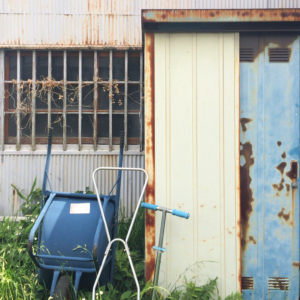
We don’t need to tell you about the brilliance of Japan quality: detailed, good service and competitive price etc etc. But for how good Japan quality in general is, it’s equally easy to screw up. Badly.
Japan’s real estate industry and construction industry are full of fraudulent companies.
A number of them are rogue (of course, there are good and trustworthy companies, too.)
You need to be very careful to deal with them.
When you build your brand-new house in Japan, you must be extra mindful because it could be a disaster if it goes wrong.
It is widely known to the industry professionals that the laws are not necessarily protecting the consumers
(customers).
Why is the owner (consumer) in so disadvantageous position ?
There are five main reasons.
1.The industry is not seeking a repeat business so they don’t look after customers well
2. High overhead cost
3. The related laws have many loopholes
4. The owner(customer) trusts the contractor (real estate agents and builders included) too much
5. Victim’s tragic stories are not widely reported in the media.

